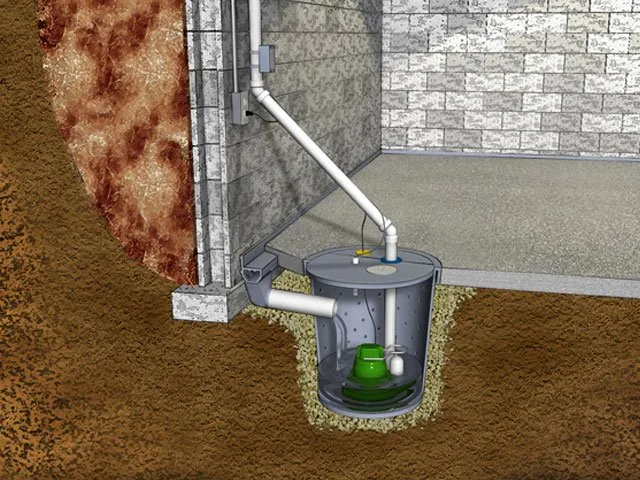Comprehending the Trick Elements of Effective Water Purification Systems

Importance of Water Purification Solution
Water filtration systems play a crucial role in making sure accessibility to secure and tidy drinking water by efficiently eliminating impurities and contaminations. These systems are important in dealing with the growing issues over water top quality and the possible health risks connected with eating polluted water. By using different filtering mechanisms such as reverse osmosis, turned on carbon, and UV sanitation, water purification systems can successfully get rid of hazardous substances like microorganisms, infections, heavy steels, and chemicals from the water.
Furthermore, water purification systems help to enhance the preference and smell of water by eliminating chlorine, debris, and various other contaminants that can affect its quality. Water Filtration Systems. This enhancement in water quality not just makes it much more palatable but also urges individuals to consume alcohol a sufficient quantity of water daily, advertising much better hydration and general health and wellness
Types of Purification Elements

Physical filters are created to literally stress out impurities from the water. These filters can be constructed from products like ceramic, carbon, or perhaps sand, and they function by capturing bits larger than the filter's pores as water goes through.
Chemical filters make use of various chemical procedures to remove pollutants from the water. Examples consist of turned on carbon filters, which adsorb impurities, and reverse osmosis membranes, which make use of pressure to separate impurities from the water.
Organic filters utilize living microorganisms like germs or algae to damage down raw material and contaminants in the water. These filters are often utilized in wastewater therapy plants or natural water purification systems.
Understanding the various kinds of purification elements is critical for selecting the most suitable water purification system for certain purification needs.
Function of Debris Filters
Sediment filters play see this website an important duty in water filtering systems by effectively capturing solid fragments suspended in the water. These filters are generally the very first line of defense in a filtration system, getting rid of larger particles such as sand, silt, dirt, and corrosion prior to the water moves via finer purification stages. By trapping these sediments, the filters prevent them from reaching downstream elements, thus expanding the lifespan and effectiveness of the entire system.
Overlooking this upkeep can lead to obstructing, lowered water flow, and jeopardized purification performance. In general, debris filters are essential elements that add considerably to the efficiency of water filtering systems.
Function of Triggered Carbon Filters
Playing a critical role in water filtration systems, activated carbon filters contribute in eliminating pollutants and impurities from the supply of water. These filters are created to adsorb and trap a large range of toxins, including chlorine, unstable natural compounds (VOCs), pesticides, and herbicides. The turned on carbon material has a large area, enabling the effective capturing of pollutants with a process called adsorption. As water passes through the filter, the activated carbon holds and draws in onto the pollutants, guaranteeing that the water that comes out beyond is cleaner and more secure for intake.
Activated carbon filters are highly reliable at enhancing the preference and smell of water by decreasing chemicals that can affect its high quality. Due to their adaptability and dependability, triggered carbon filters are a vital Learn More part in ensuring that water is purified to the greatest requirements before getting to consumers.
Understanding Reverse Osmosis Systems
Reverse osmosis systems are advanced water filtration systems that use an innovative process to eliminate impurities and contaminations from alcohol consumption water. These systems work by applying pressure to the water, forcing it through a semi-permeable membrane.
In addition, reverse osmosis systems are relatively low-maintenance and can be installed under the sink or in a main purification system, providing hassle-free accessibility to clean water throughout the home. On the whole, understanding how reverse osmosis systems function can assist individuals make informed choices regarding their water filtration demands.
Final Thought
Finally, efficient water purification systems are vital for making sure clean and risk-free drinking water. The crucial parts of these systems consist of sediment filters, activated carbon filters, and reverse osmosis systems. By understanding the feature and role of each component, individuals can make educated decisions when picking a water filtration system. It is essential to prioritize the quality of water in order to promote overall health and wellness and health.
Water filtering systems play an essential function in ensuring access to clean and risk-free alcohol consumption water by successfully removing contaminations and contaminants. By using numerous filtering devices such as reverse osmosis, activated carbon, and UV sanitation, water purification systems can efficiently eliminate harmful compounds like germs, viruses, hefty steels, and chemicals from the water supply.
Debris filters play an essential function in water filtration systems by successfully recording solid bits suspended in the water (Pump repairs & navigate to this site installation).Playing a critical function in water filtration systems, triggered carbon filters are instrumental in getting rid of pollutants and impurities from the water supply.Reverse osmosis systems are advanced water filtering systems that utilize an innovative procedure to eliminate pollutants and impurities from drinking water
Comments on “Proactive Water Treatment Actions: Purchasing Long-Term Water Top Quality”